A guest blog for Dyslexia Box by Paul Daniels (not the magician)
Paul Daniels (not the magician) is an International Speaker, Board Advisor, International Bestselling Author, and Founder of the Peripheral Thinkers™ think-tank.
He advises neurotypical business owners, entrepreneurs, and corporate leaders on challenging convention, finding multiple paths to growth and innovation, and thriving in any market condition. He has translated dyslexia’s super-skills into a learnable set of skills for non-dyslexics called Peripheral Thinking™. Paul’s experience spans over four decades, 31 industries, and 27 countries. His clients affectionately call him the “Innovation Whisperer.”
Imagine…
You’re standing on a stage in front of 1,000 people. Everyone, well, almost everyone, is looking at you. The few that aren’t are checking their phones. Your message will either change the way the audience feels, thinks, and acts, or it will fall flat. No slides. No notes. No podium. Just a lapel mic and a big idea…
Deep breath. Your opening line, “You have access to everything you need to achieve anything you want.” You repeat the sentence emphasizing “YOU,” “EVERYTHING,” and “ANYTHING.”
The few heads stuck in their phones pop up.
If you could hear the audience’s thoughts, it might sound like this:
“Wait! What did she/he say?”
“Yeah, right! What do you know about what I need and want?”
“I wonder what she/he means?”
“Everything? Anything? Hmm…”
I know what the audience is thinking because I read minds. Not really, but audience members often share their thoughts with me after the speech. “I was thinking XYZ. Now I see 123.”
The need for innovation
Business owners, entrepreneurs, and corporate leaders all face similar challenges. Industry disruptions. Market shifts. Resource constraints. Changing customer demands. New governmental or regulatory requirements.
When facing challenges, some people and companies do more than adapt or develop a fix. They seem to effortlessly innovate beyond the challenge.
Other people and companies muscle their way through changing demands and obstacles. They come out on the other side of the challenge, having adapted but with little or no noticeable improvement.
Then there are the few who freeze. They ignore change, expecting challenges to pass them by. Meanwhile, their walls crumble around them.
You either adapt to the changes in your environment, or you create changes in yourself and TO your environment. In a world where the pace of change is accelerating, if you don’t grow and innovate, you risk being marginalized. Or worse… irrelevant.
Innovation is no longer for a few thought leaders. It is no longer represented only by cutting-edge science and technology. Instead, innovation is renewing, altering, and reassembling existing elements for a greater impact.
Why dyslexia super skills are important
Throughout history and in the present, many of the most prolific innovators—from corporate pioneers to world-class athletes—were/are dyslexic. Einstein. Henry Ford. Ann Bancroft. Da Vinci. Agatha Christie. JFK. Richard Branson. And thousands more.
We are at an inflection point. Conventional wisdom and industry best practices have been weighed, measured, and found wanting. The people and organizations thriving today do so because they see the bigger picture. They find patterns where others only see chaos. They connect seemingly unrelated information to predict and even create the future.
Read the World Economic Forum’s “Future of Jobs” reports and the research by Made By Dyslexia, EY, and ManpowerGroup — The Dyslexic Dynamic, The Dyslexic Dynamic. All evidence points to the skills organizations need to succeed in our rapidly changing world. There is more need for the super-skills found innately in dyslexics than there are dyslexic people to fill the needs. Neurodiversity gives organizations unique perspectives to excel in increasingly competitive markets filled with “same as” products/services.
Dyslexia’s super-skills are essential for any organization that wants to do more than adapt and survive—the receipt for marginal moving toward irrelevance. It’s time to learn and apply the skills the innovators use naturally.
So…what next?
First, work with an organization like Dyslexia Box to ensure you can attract, cultivate, and retain powerfully diverse resources. The more varied perspectives you introduce to your organization, the more certain your ability to innovate beyond your challenges.
Second, engage an advisor to teach you and your staff the inventive super-skills used by the leaders listed above. It is easier than you think. If I can teach a room of 1,000 people how to use one super-skill during a 60-minute speech, surely you can learn and apply the skills to set your business on a new trajectory.
Third, question everything. Look beyond your company, competitors, clients, and industry. Boldly explore your periphery for new ideas and proven solutions. Just because today your process works, your products are in demand, or your company is growing, that does not ensure the same for tomorrow. You need new perspectives from new references. I recommend Peripheral Thinking™.
“When you know where and how to look, you will have access to everything you need to achieve anything you want.”
copyright 2023 Paul Daniels, Jr.
